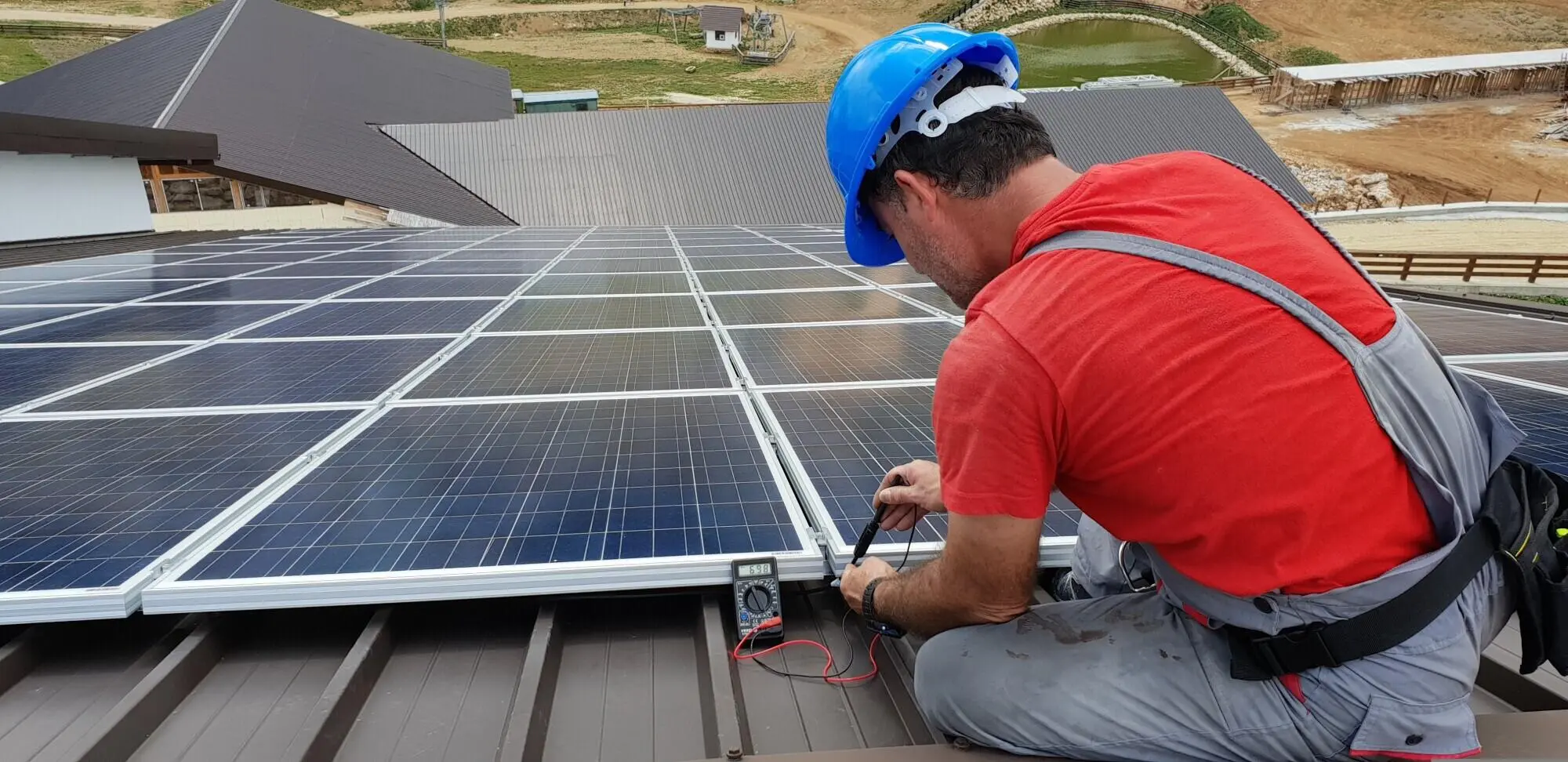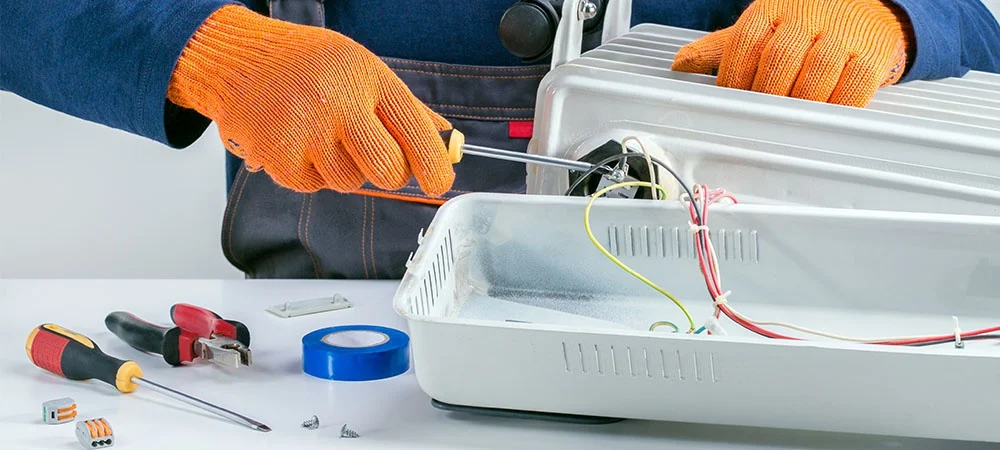HOME IMPROVEMENT
Complex Fixes and Upgrades in Your House: 6 Tips Worth Following

Homeownership comes with its share of responsibilities, particularly when it comes to maintaining and upgrading your property. While some fixes are straightforward, others can be complex, requiring careful planning, professional expertise, and the right materials. Tackling these projects with the right approach can save you time, money, and future headaches. Here are six essential tips for addressing complex fixes and upgrades in your home.
Evaluate the Scope of the Project
Before diving into any major home repair or upgrade, take the time to thoroughly evaluate the scope of the project. Determine whether it is a task you can handle on your own or if it requires professional intervention. Complex projects such as structural repairs, electrical rewiring, or plumbing upgrades often demand specialized knowledge and tools.
Consider consulting with a contractor or expert to assess the full extent of the work required. A detailed evaluation can help you create a realistic budget, timeline, and plan to ensure the project is completed successfully.
Prioritize Safety and Code Compliance
Safety should always be your top priority when undertaking home repairs or upgrades. Many complex fixes involve working with hazardous materials, heavy equipment, or dangerous environments. For instance, projects like chimney replacements or roof repairs require specialized equipment and adherence to strict safety protocols. Plus, ensure that all work complies with local building codes and regulations.
Non-compliance can result in fines, delays, or the need for costly corrections. Hiring licensed professionals who understand these requirements is often the best way to guarantee a safe and compliant outcome.
Invest in Quality Materials
The quality of materials you choose for your home projects plays a significant role in their durability and performance. While it may be tempting to cut costs by opting for cheaper alternatives, investing in high-quality materials can save you money in the long run by reducing maintenance and replacement needs.
For example, if you’re upgrading your chimney, selecting durable materials like stainless steel liners or fire-resistant bricks can enhance safety and longevity. Always research the best options for your specific project and consult with professionals to make informed decisions.
Plan for Unforeseen Challenges
Even with meticulous planning, complex home projects can encounter unexpected obstacles. Hidden issues such as water damage, structural weaknesses, or outdated wiring may only become apparent once work begins. These surprises can increase costs and extend timelines, so it’s crucial to build flexibility into your budget and schedule.
For instance, during a chimney replacement, workers might discover cracks in the masonry or a compromised foundation that requires additional repairs. Being prepared for such contingencies can help you avoid stress and ensure the project stays on track.
Choose the Right Professionals
Selecting the right professionals to handle your home upgrades is one of the most important steps in ensuring a successful outcome. Look for contractors or specialists with experience in the specific type of work you need. Read reviews, ask for references, and verify credentials such as licenses and insurance.
Clear communication is also essential. Discuss your goals, expectations, and budget with your chosen professional to ensure they understand your vision. A good contractor will provide detailed estimates, timelines, and progress updates to keep you informed throughout the process.
Focus on Long-Term Value
When making upgrades or repairs to your home, think beyond immediate needs and consider the long-term value they will provide. Energy-efficient improvements, durable materials, and modern design elements can increase your home’s resale value and reduce future maintenance costs.
For example, replacing an aging chimney with modern, efficient components not only enhances safety but also boosts energy efficiency by improving ventilation. Similarly, investing in high-quality insulation during a renovation can lower heating and cooling costs for years to come. Prioritizing upgrades that add long-term value ensures you get the most out of your investment.
Factor in Environmental Sustainability
Sustainability is becoming a priority for many homeowners, and integrating eco-friendly practices into your home upgrades can have lasting benefits. Consider using recycled or sustainably sourced materials for your projects, and look for energy-efficient options when replacing appliances or systems.
For example, when working on complex fixes like replacing windows or updating HVAC systems, opt for designs that reduce energy consumption and lower your home’s carbon footprint. Incorporating green solutions not only helps the environment but can also lead to significant savings on utility bills over time. Taking a sustainable approach ensures your upgrades align with modern standards and values.
Complex home repairs and upgrades require careful planning, quality materials, and professional expertise to achieve successful results. By evaluating the scope of the project, prioritizing safety, and choosing the right professionals, you can navigate these challenges with confidence. Whether it’s a replacement of chimneys, structural fixes, or energy-efficient upgrades, following these tips will help you enhance your home’s functionality, safety, and value for years to come.
HOME IMPROVEMENT
7 Creative Ways to Boost Your Home’s Curb Appeal With Exterior Renovations

Are you looking to transform the look of your home without breaking the bank?
Exterior renovations can be the perfect solution to boost your home’s curb appeal, making it stand out in the neighborhood. From simple tweaks to more significant changes, this article explores seven creative ways to enhance your home’s exterior.
Whether you’re looking to sell your home or simply want to make it more inviting, these tips will help you achieve a fresh, new look that will catch everyone’s eye.
1. Update the Front Door
Updating front of houses, can dramatically change your home’s appearance. You can paint it a new color or replace it altogether with a modern design. Adding new hardware like a stylish doorknob or a smart lock can also make a big difference.
2. Add Exterior Lighting
Adding exterior lighting can make your home safer and more welcoming at night. Install lights along pathways, near the front door, or around your garden to highlight your home’s best features. This upgrade not only improves visibility but also adds a warm ambiance to your outdoor spaces.
3. Upgrade the Garage Door
Upgrading your garage door can significantly improve your home’s overall look. You can choose a new door that matches your home’s style or one that stands out as a feature. A new garage door not only looks good but can also increase your home’s security.
4. Enhance Landscaping
Improving your landscaping is an effective way to beautify your small house exterior. You can plant flowers, shrubs, or even a tree to add color and life to your outdoor space.
Regular maintenance, such as mowing the lawn and trimming plants, keeps your yard looking neat and tidy. If you have a pathway leading to the entryway, consider the best paver installation to complement the overall design and provide a durable and attractive walking surface.
5. Install Window Shutters
Installing window shutters can enhance your home’s aesthetic and offer added privacy. They are available in various styles and colors to match any home design. Shutters also provide an extra layer of insulation, which can help regulate indoor temperatures and reduce energy bills.
6. Upgrade Exterior Finishes
Upgrading the finishes on your home’s exterior can give it a refreshed look. This can involve repainting the siding, trimming, or even replacing old materials with new, more durable options. It can help protect your home from the elements and improve its overall value.
7. Add Architectural Details
Adding architectural details to your home can give it a unique character. This could include features like decorative trim, molding around windows and doors, or a custom mailbox. Such details can set your home apart from others and reflect your personal style.
Elevate Your Home’s Charm With Exterior Renovations That Turn Heads
Enhancing your home doesn’t have to be a daunting task. With these exterior renovations, you can make a big impact with just a few changes. Remember, it’s all about creating a space that you love and that welcomes you every time you come home.
Whether it’s a new front door, brighter lights, or beautiful landscaping, each step you take adds value and beauty. Start imagining the possibilities and make your home the envy of the neighborhood with these simple upgrades.
Were you satisfied with the information in this article? If yes, our blog offers even more valuable resources.
HOME IMPROVEMENT
Understanding the Benefits of Solar Power Net Metering for Homeowners

Imagine a world where each dawn brings the promise of a new day. It also brings a brighter financial outlook and a lighter ecological footprint.
That future may be closer than you think. An innovation is turning rooftops into revenue streams. It’s also fueling a much-needed green revolution.
We’re talking about solar power net metering. It’s a game-changer for homeowners who want to cut their electricity bills and help the planet.
Here, we’ll explain solar net metering. We’ll cover its benefits for you and the environment and how it’s shaping up to be the key to the energy landscape.
Understanding Solar Power Net Metering
Fundamentally, net metering is a billing system that reimburses owners of solar energy systems for the electricity they contribute to the grid. For example, let’s say a home client gets solar panels installed on their rooftop. It can produce more electricity during the day than the house consumes.
If the power meter in the house is net-metered, it will run backward. This offers a credit in relation to the amount of electricity used at night. or other times when the energy use of the house surpasses the production of the system. Only the “net” amount of energy used by the customer is billed.
The implications are far-reaching. It means that you can offset the electricity you use at a better rate. But on sunny days, when your solar panels are ramping up, you’re storing energy credits. You can cash them in later.
The best part? You help to promote energy independence. You do this by stabilizing the grid and cutting the need for expensive energy infrastructure.
But how does this translate into real-world benefits for you, the conscientious homeowner looking to make a difference?
A Win for Your Wallet
The financial benefits of solar net metering are crystal clear. By using the sun’s rays to make your own electricity, you’re cutting the cord with power companies. Or at the very least, significantly reducing your reliance on them.
This can lead to substantial savings on your monthly electricity bills. Savings that can accumulate to pay off your initial solar panel system installation costs over time.
Here’s the beauty of it: with net metering, you save on your bill when your solar system makes power. It can be the cost of using grid power. Depending on local rules, you might even make money if your household makes more power than it uses.
Utilities may credit you at the retail electricity rate, which is often much more than the cost of the utility’s generation of electricity. Consider this a welcome check-in from the environment itself.
The Environmental Edge
Beyond the personal finance sphere, solar net metering is a boon for the planet. Using renewable energy makes a real difference that reduces greenhouse gas emissions and combats climate change. You are also fostering a habitat that’s cleaner and healthier.
Each solar kilowatt-hour reduces the demand for fossil fuel electricity. Fossil fuel power causes smog, acid rain, and global warming.
An average household solar panel system could save tons of carbon dioxide every year. This is equivalent to planting many trees annually. The environmental payback is immediate and ongoing, with the potential to inspire a ripple effect in your community.
Energy Independence and Resilience
By integrating solar power into your home, you’re not just becoming an energy producer. You’re creating a microgrid of independence. This is critical, especially in times of extreme weather or grid strain.
A robust solar net metering system allows your home to operate off the grid if necessary. It helps in maximizing your energy security and reducing vulnerability to power outages.
This isn’t just theoretical. In the face of natural disasters, solar panel owners often find themselves significantly less affected, if not completely untouched, by power disruptions. Imagine the peace of mind that comes with knowing that your lights, appliances, and devices will stay powered, even when the broader electrical network is under duress.
Future-Proofing with Innovation
While the immediate benefits of solar net metering are compelling, it’s the long game that really sets it apart. With every panel installation, with every kilowatt-hour saved, we’re collectively building a more sustainable future.
The future of energy is marked by decentralization, democratization, and a firm commitment to renewables. Solar net metering embodies all these traits, signaling the shift from a passive consumer of energy to an active participant in its creation and conservation.
This approach is not just progressive – it’s practically a safeguard against the unpredictability of the fossil fuel-derived energy market. By investing in solar net metering today, homeowners are positioning themselves at the vanguard of a movement that’s as ecological as it is economical.
The Step-by-Step to Solar Net Metering
If the notion of solar power and net metering has got you reaching for the sun, it’s time to consider the practical steps toward implementation. First, prioritize a trusted solar panel installation company. Quality matters when it comes to solar technology – from panel efficiency to system longevity, the brand and installation expertise you choose will directly impact your experience and outcomes.
Next, familiarize yourself with local net metering policies. These may range from state to state or even from utility to utility, with specifics on credit calculation, contract length, and surplus handling varying.
Finally, weigh the costs and benefits. While the initial investment in a solar panel system can seem substantial, the long-term financial returns and environmental advantages often far outweigh the outlay.
Explore Solar Power Net Metering for Homeowners Today
The blend of tech innovation, eco-friendly practices, and personal finance is now more practical. Net metering is a solar power transformation. It empowers homeowners to control energy, cut their carbon footprint, and gain energy independence.
Embracing solar power net metering brightens not just your house, but also your financial health and the planet’s future. Converting sunlight to energy powers not just your home, but the change. In a time where every action matters, this could be your most impactful move yet – right from your rooftop.
Check out our blog for insights on cutting-edge topics. Start exploring now to better understand how you can make a difference.
HOME IMPROVEMENT
Pros And Cons of DIY Appliance Repair

Household appliances are necessary in our daily lives to make our lives more manageable and efficient. These appliances serve us 24/7 and create ease for washing our clothes and dishes, keeping our food cool, and saving for a longer time. But sometimes, these appliances get damaged. This is the most awkward situation, as we have to decide whether to repair our appliances ourselves or get assistance from professionals. It is better to choose the services from Appliance Repair Miami if you are not familiar with the repairing tools.
In this advanced world, when the internet becomes easy to access for everyone, DIY appliance repair has become common and popular. Everyone can find the most relevant and accurate tutorial on the internet to resolve their appliance’s problem by themselves. Fixing the issue on your own can also save both time and money. Besides this, it builds confidence to deal with any other matters on their own for the future. In this article, we highlight the pros and cons of DIY Appliances Repair.
Pros of DIY Appliance Repair
Cost Savings
DIY appliance repair is a cost-saving process. Lots of money is wasted on calling a professional for repair services. They charge for the time, labor, calls, and components of the machines. It’s become pretty costly. Repairing household appliances by yourself not only saves time but also saves the cost of hiring professionals.
It reduces the expense of labor and professional time. You can find the required components of the appliances from local or online stores. Get the knowledge of fixing from internet tutorials or read the manufacturer’s guidelines. In short, DIY appliance repair is a cost-saving technique to fix your appliance’s problems.
Convenience and Flexibility
Besides cost saving, DIY repair is also a flexible and convenient process to fix the issues according to your timeframe. You don’t need to wait for long for the professional’s appointments. Moreover, you don’t even need to rearrange your day according to the technical schedules. Solving the problem on your own can allow you to resolve your components according to your time flexibility.
Learning and Skill Development
Another benefit that a user can get is the learning of new skills with the practical approaches of DIY repair. With repairing, they can get the experience to understand their electronic appliances and enhance their problem-solving skills. It also builds confidence to upgrade their knowledge and reduce the dependency on technicians.
Customization And Control
You can get more control over the repair process and can customize it according to your needs. Furthermore, you can choose the quality components that can serve you for a longer time. This customization and control over the entire process gives peace of mind and saves you time. It also prevents the appliances from being damaged again and again.
Emergency Situations
Sometimes, we need immediate solutions, and we have to wait for many days and weeks due to the weekend or any other emergency holidays. In this situation, it’s become challenging to continue our lives without our necessary home appliances. DIY repairing frees us from such long waits. It is the best solution for quick problem-solving and prevents any further potential damage.
Cons of DIY Appliance Repair
Although there are many advantages to DIY appliance repair, there are also some disadvantages that every DIY repair user must know about.
Risk of Further Damage
Due to not having enough experience, DIY repair techniques may lead to further damage to your household appliances. If your knowledge is limited and you have no previous practical experience, you can not repair your machine accurately. You face many challenges during the process like improper diagnosis of the issues, wrong use of tools, selection of inaccurate parts, etc. Before starting the DIY repair process, you must have basic knowledge about the entire process.
Time-Consuming
Due to a lack of experience, DIY repair techniques may take more time as compared to professional technicians. It’s become challenging to analyze the complexity of the damage, and it can take more time to make component selections. You have to spend more time watching various tutorials and videos. DIY appliance repair is a suitable method if you have ample time for this entire process. This process demands more time and patience.
Conclusion
DIY appliance repair techniques have both advantages and disadvantages. It can save your time, effort, and money but can also lead to further damage to the appliances due to a lack of knowledge and experience. Moreover, it also offers flexibility to work and enhance your skills to handle future issues. On the other hand, improper use of tools can lead to further damage to electronic appliances. Read both pros and cons and make a wise decision to start the process.

 HOME IMPROVEMENT11 months ago
HOME IMPROVEMENT11 months agoThe Do’s and Don’ts of Renting Rubbish Bins for Your Next Renovation

 BUSINESS12 months ago
BUSINESS12 months agoExploring the Benefits of Commercial Printing

 BUSINESS12 months ago
BUSINESS12 months agoBrand Visibility with Imprint Now and Custom Poly Mailers

 HEALTH8 months ago
HEALTH8 months agoThe Surprising Benefits of Weight Loss Peptides You Need to Know

 TECHNOLOGY10 months ago
TECHNOLOGY10 months agoDizipal 608: The Tech Revolution Redefined

 HEALTH7 months ago
HEALTH7 months agoYour Guide to Shedding Pounds in the Digital Age

 HOME IMPROVEMENT7 months ago
HOME IMPROVEMENT7 months agoGet Your Grout to Gleam With These Easy-To-Follow Tips

 HEALTH11 months ago
HEALTH11 months agoHappy Hippo Kratom Reviews: Read Before You Buy!









